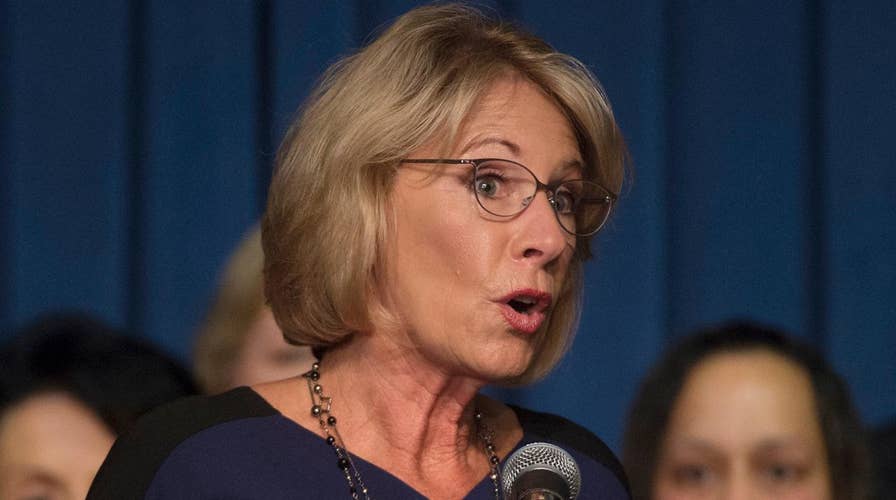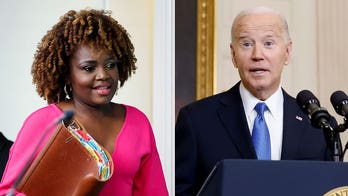Why the left opposes Betsy DeVos
Center for Education Reform founder Jeanne Allen responds on 'Journal Editorial Report'
U.S. Education Secretary Betsy DeVos is set to give a major speech Thursday on Obama-era directives on campus rape in the wake of a damning report spotlighting a lack of due process rights for accused students across university campuses.
DeVos is expected to make an announcement regarding Title IX, the 1972 campus gender equality law, at George Mason University in Virginia, BuzzFeed News reported.
Insiders have described the event as “centered around equal opportunity and equal protection of all.”
Education experts have long expected DeVos to make a move on Title IX and the Education Department 2011 directive named “A Dear Colleague Letter” that set the procedures for colleges that receive a sexual assault report.
The procedures include setting how long campus sexual investigations should take, what standards of evidence should be used, and prohibiting colleges from just sending a case to police, BuzzFeed News notes.
Some have criticized the directive and standards used in the prosecution of sexual assault on campus, claiming the accused students often do not receive significant protections and due process rights – turning university investigations into so-called “kangaroo courts.”
DeVos has often been attacked for expressing interest in changing Title IX. During her confirmation hearing, she came under fire for having donated to a group that has been critical of how Title IX is enforced on campus, Politico reported.
More recently, feminist groups criticized her for meeting with so-called men’s rights activists who opposed campus policies, the New York Times reported.
The possible major changes to Title IX would follow a damning report by the Foundation for Individual Rights in Education (FIRE) that found most American universities deny due process rights to the accused.
According to a first-of-its-kind report titled “Spotlight on Due Process 2017” – which looked at 53 top American universities – almost 74 percent of schools did not presume a student to be innocent until proven guilty in non-academic cases.
At the same time, 85 percent of top schools in the country received the lowest grades for due process protections and 79 percent of surveyed institutions received a D or F rating for protecting the rights of a student accused of sexual misconduct.
Less than half of surveyed universities, meanwhile, “require that fact-finders — the institution’s version of judge and/or jury — be impartial”, the report said.
A number of Ivy League universities, for example, do not guarantee the presumption of innocence during sexual misconduct trials and rarely give the accused access to evidence or conducts a cross-examination.
No universities have scored the top A score.





